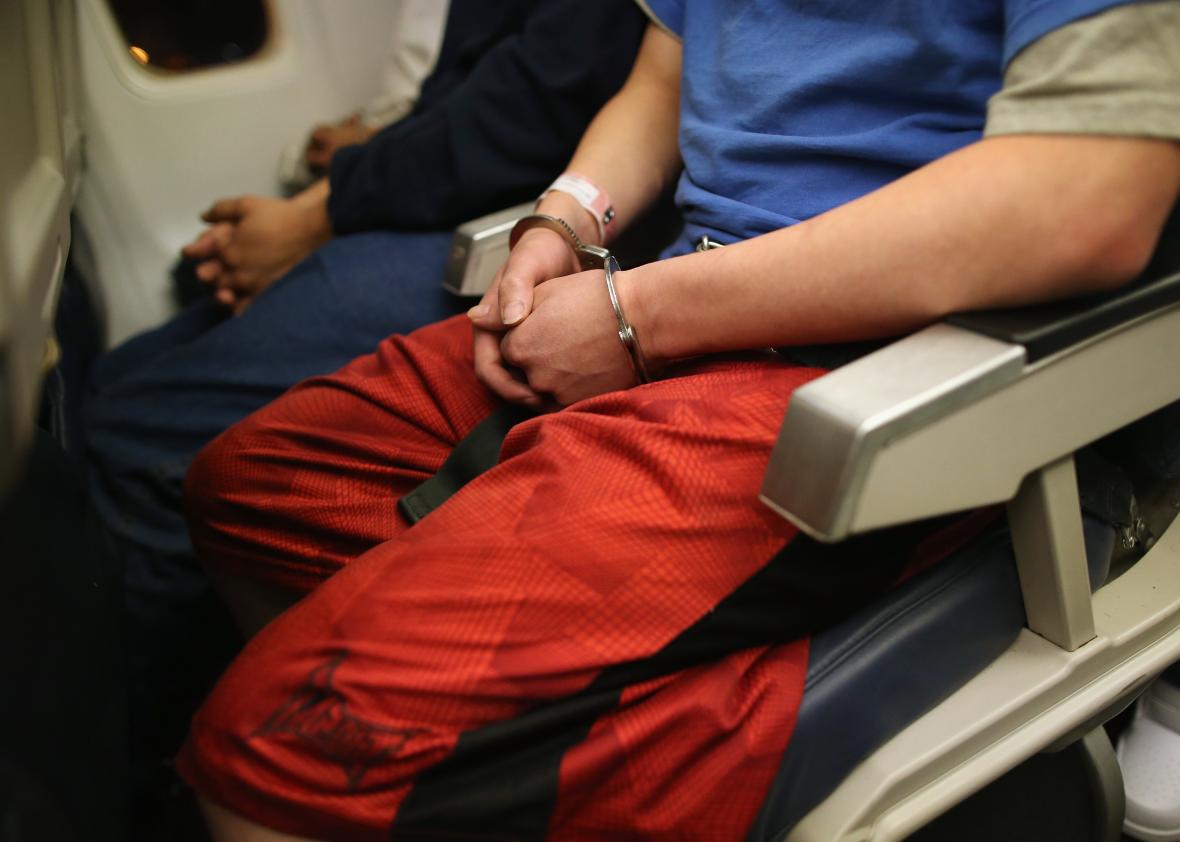The story of Adam Crapser is maddening. Adopted at the age of three years old and brought legally to the United States from South Korea, Crapser lived with multiple sets of abusive foster parents before being kicked out of his home at 16. He broke back into that home, he says, in order to take back a pair of green rubber shoes and a Korean-language Bible that had been some of the lone possessions he had brought with him from Korea. He was arrested and served 25 months in prison after pleading guilty to burglary, then continued to have troubles with the law—including an assault conviction after a fight with a roommate and a violation of a protective order that an ex-girlfriend and mother of one of his children had taken out against him for trying to telephone his son. He has finally cleaned up his life and is a stay-at-home father of four children.
But now the 41-year-old Crapser is going to be deported from the place he has called home since he was three despite having been brought to the United States legally as a small child and having suffered at the hands of abusive parents, who failed to fill out the paperwork to get him U.S. citizenship. Crapser had been in detention awaiting deportation for almost nine months and on Monday he waived an appeal to fight that forced removal from the United States, the Associated Press reported. He did so, his lawyer Lori Walls told the AP, because he was desperate to get out of the detention center.
More from the AP:
In an email, Walls said Adam was eligible for a deportation reprieve called “cancellation of removal,” but the “judge decided he did not deserve this relief.”
“He will be deported as soon as Immigration and Customs Enforcement makes the necessary arrangements,” Walls said. “Adam, his family, and advocates are heartbroken at the outcome.”
Immigration Court Judge John C. O’Dell presided over the case and Kathryn Mattingly, a spokeswoman with the Executive Office for Immigration Review of the U.S. Department of Justice, told the AP she couldn’t comment on Crapser’s story without a registration number and possibly a privacy waiver.
If you want to know more about how terrible of an injustice this is, read Maggie Jones’ phenomenal New York Times Magazine story on the case from April, 2015, which lays out in painstaking detail Crapser’s “Kafkaesque” odyssey.
The story describes how Crapser’s adoptive parents, Thomas and Dolly Crapser, were charged with dozens of counts of child abuse—including rape, sexual abuse and criminal mistreatment—and convicted of several counts of criminal mistreatment and assault (the father was convicted of one count of sexual abuse and served 90 days in jail).
As the Times Magazine reported:
Dolly, Crapser says, slammed the children’s heads against door frames and once hit him in the back of the head with a two-by-four after he woke her up from a nap. Thomas duct-taped the children’s mouths shut, Crapser says. He also burned Crapser’s hands and once broke his nose when Crapser couldn’t find Thomas’s car keys.
Crapser became subject to deportation when he sought a green card in 2012. The reason he is to be deported is that he is not covered by a 2000 law called the Child Citizenship Act, which gave automatic citizenship to children who were legally adopted by U.S. citizens. That law only covered adoptees under the age of 18 at the time it was passed, leaving an estimated 35,000 intercountry adoptees lacking U.S. citizenship according to what the National Korean American Service and Education Consortium told the AP. Activist groups had been lobbying since at least last year to rectify the missing grandfather clause in the Child Citizenship Act, but to no avail.
ICE spokesman Andrew Muñoz told the Times Magazine in 2015 that “ICE was not aware of Mr. Crapser’s childhood history” when it decided to look at his case but that it would take that history into consideration in any deportation proceeding.
It looks, however, as though that consideration was not enough to keep American immigration officials from sending Crapser away from his wife, his children, and the only home he has ever truly known because of a legal technicality.
Correction, Oct. 27, 2016, at 10 p.m.: This post originally misidentified Adam Crapser as Adam Crasper.
